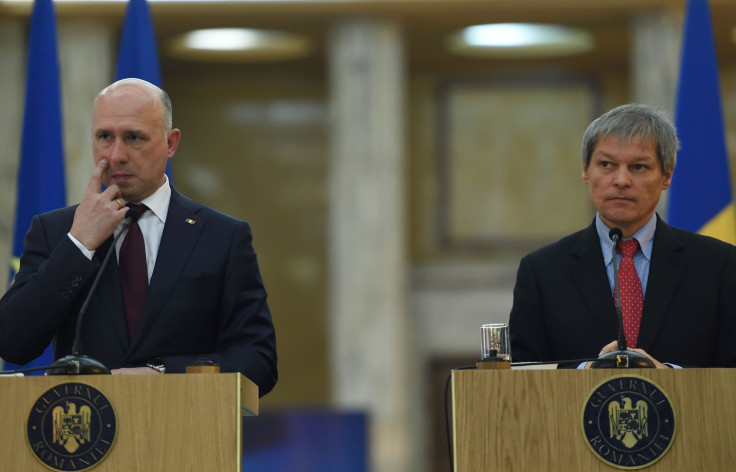Romania Offers $65M Loan To Moldova To Prevent Economy's Collapse; Sets Reforms As Condition

Romania offered a loan of 60 million euros ($65 million) to the government of Moldova Tuesday to prevent the latter's economy from collapsing. The former Soviet republic lies between European Union members Ukraine and Romania, and is the poorest country in Europe.
After making the offer, Romania’s Prime Minister Dacian Ciolos said Moldova will have to fight corruption in the country and make other reforms if it wanted the money. The loan offer was announced during a visit by Moldova's Prime Minister Pavel Filip to Romania, the Associated Press (AP) reported. Ciolos also reportedly offered emergency aid for food and heating that will not have to be repaid.
"If we don't carry on with reforms that are felt in Chisinau (capital of Moldova) and beyond, this political class has no chance," Filip said in a joint press conference with Ciolos, according to AP.
Moldova is currently facing political turmoil after its former Prime Minister Vlad Filat was implicated in a case of fraud, after over $1 billion disappeared from three Moldovan banks. Filat is currently awaiting trial in the case. Anti-corruption protesters have also been demanding that Filip resign from his post.
The country’s residents have been reportedly protesting against corruption and Filip’s taking over the prime minister's post, even storming into the parliament in Chisinau earlier this month. Filip has dismissed the calls to resign so far and also issued a warning Monday that he would crack down against violent protests, BBC reported.
"We could find ourselves in a deep economic and social crisis. It's possible that Moldova wouldn't be able to pay salaries and pensions for four months," Filip said, according to BBC.
Officials from the International Monetary Fund visited Moldova in September last year to negotiate a deal for a loan needed to pay salaries and pensions. But the team left after Dorin Dragutanu, governor of Moldova’s central bank, resigned under pressure from protestors.
Moldova’s government had stepped in to pay back the money that went missing from the three banks, which triggered a shortage of funds.
© Copyright IBTimes 2025. All rights reserved.






















